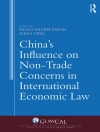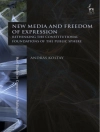The language of political debate and analysis has changed dramatically in recent years. Today, both academics and practitioners have largely abandoned the vocabulary of the left and replaced it with a set of concepts that structure debate and set the political agenda. Thus, the world economy is discussed in terms of globalisation instead of international capitalism.
Moreover, the apparently benign concepts of civil society, citizenship and stakeholder have replaced those of class and class conflict, poverty is about social exclusion rather than exploitation, and consumer choice and worker empowerment have replaced the pursuit of class interests. In today’s political climate, socialism is seen as old-fashioned or utopian. In contrast, capitalism is seen as realistic, and the ‘third way’ is presented as the solution to all our ills.
This book explores the real issues behind these catchphrases of modern politics, explaining what they mean, and offering a critique of the ideology of which they are a part.
Tabella dei contenuti
Introduction by Georgina Blakeley and Valerie Bryson
1. Globalisation by Graham Harrison
2. Governance by Andrew Taylor
3. Postmodernism by Stephen Brown
4. Citizenship by Keith Faulks
5. Civil Society by Georgina Blakeley
6. Gender by Valerie Bryson
7. ‘Ethnicity’, ‘Race’ and ‘Racism’ by Amrit Wilson and Kalpana Wilson
8. The Third Way by Brendan Evans
9. Empowerment by Hannah Cooke
10. Stakeholding by Adrian Budd
11. Social Capital by Georgina Blakeley
Circa l’autore
Valerie Bryson is Professor of Politics at the University of Huddersfield. She teaches and researches on feminist theory, and women and politics. She is the author or editor of a number of books, including Feminist Debates (Macmillan, 1999), Marx and Other Four-Letter Words (Pluto, 2005) and Contemporary Political Concepts (Pluto, 2002).












